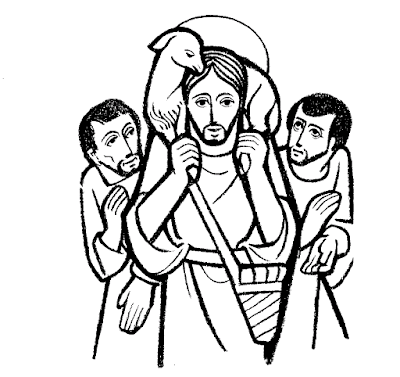SACRED HEART OF JESUS - Romans 5:5-11
Every Friday reminds us of Jesus’ death on the cross, which was his supreme gift of love: he died for us so that we may live. In his gospel, John tells us that “one of the soldiers pierced his side with a spear, and at once blood and water came out.” (Jn 19:34). He poured out his life for us, and his heart was wide open to become the refuge in which we find peace and joy.
This is the reason for the feast of the Sacred Heart of Jesus - it is a celebration of love, of God’s love revealed to us in Jesus Christ. Speaking of the Heart of Jesus, we speak of his human and divine love. His heart of flesh reminds us of his Incarnation, which was a great proof of love. Out of love, the Son of God became a human being and shared our pain and our suffering. He chose to become one with us, walking along with us through the paths of this world, carrying the cross of our sin, so that we may be set free and transformed into children of God. Before the narrative of the Last Supper, John tells us that Jesus, “having loved his own who were in the world, he loved them to the end” (Jn 13:1).
We cannot fall into the mistake of thinking that we are worshiping a human organ, a piece of flesh, even if it belonged to Jesus. The heart stands for the whole person - the whole Jesus Christ - in his love for us. In his letter to the Romans, Paul wrote that “God proves his love for us in that while we still were sinners Christ died for us” (Ro 5:8). Indeed, “the love of God has been poured into our hearts by the Holy Spirit” (Ro 5:5), and nothing can separate us from this love (see Ro 8:37-39).
This year, as we celebrate the extraordinary Jubilee of Mercy, it is fitting that the feast of the Sacred Heart of Jesus - that is of his infinite love for us - gains a special prominence. God is love, and in his love he is full of mercy. Many times, we have the pharisaic attitude of regarding the Law as supreme, being ready to impose it, and then present ourselves as righteous, because we have fulfilled the Law. Jesus has a completely different attitude: he invites us to be like him good shepherds, who care for the weak and look for the stranded, not to reproach them, but to carry them on his shoulder.
In old times, the prophet Ezekiel had already spoken of God as being the shepherd of his people, who treats them with caring love:
I am going to look after my flock myself and keep all of it in view. As a shepherd keeps all his flock in view when he stands up in the middle of his scattered sheep, so shall I keep my sheep in view. I shall rescue them from wherever they have been scattered during the mist and darkness. (Ez 34:11-12)
In the parable of the lost sheep, Jesus speaks of the shepherd who leaves all the other sheep and goes in search of the lost one, until he finds it and brings it back on his shoulders with great joy, a joy that he has to share with the whole household of God.
In our pastoral work in the parishes, we concentrate on caring for the ones who always come, whom we can count with, ignoring the ones who have left or who never came in. We must learn with Jesus to be good shepherds and to go and look for the ones who have lost the way, revealing to them God’s kindness, compassion, mercy and love.

No comments:
Post a Comment